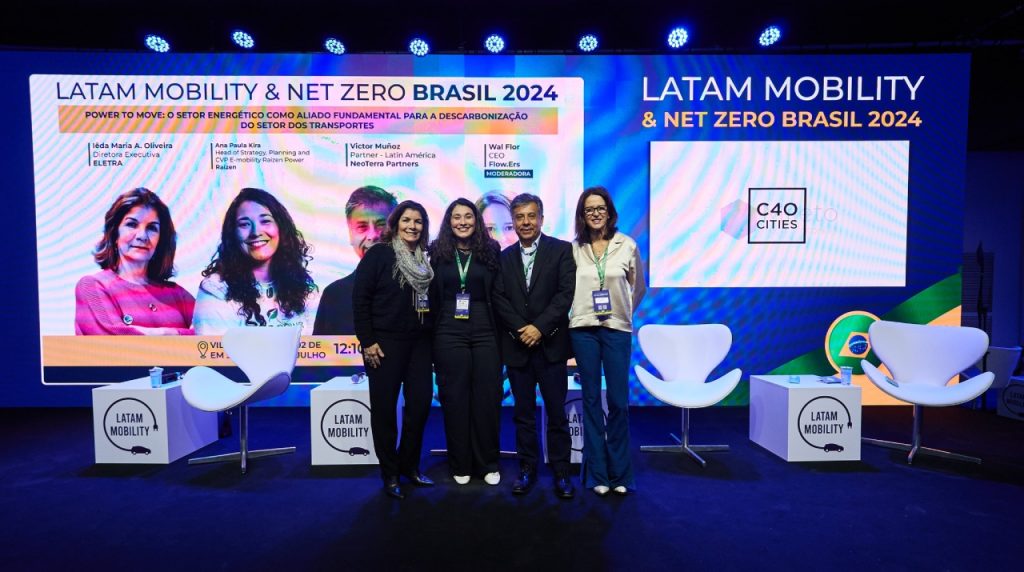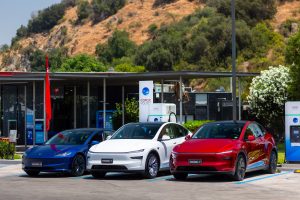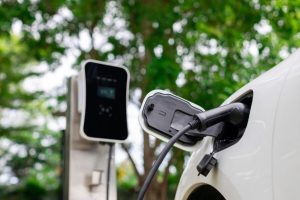
“Power to Move”: ELETRA, NeoTerra and Raízen Power Develop Technologies to Decarbonize Transportation

The energy sector as an ally for the decarbonization of the transportation sector was the topic of conversation at the “Latam Mobility: Brazil 2024” panel “Power to Move”.
Iêda Maria Oliveira, CEO of ELETRA, pointed out that they are a Brazilian company that has been developing electric buses for over 24 years with a focus on innovation.
“We launched the first trolleybuses with 100% Brazilian technology, we launched the first hybrid commercial bus in the world in 99. We launched the first pure electric vehicle in 2014 and the first electric truck in 2017,” she detailed.

She revealed that developing new products has represented a great challenge as she has competition from multinational companies with significant financial muscle.
“We are talking about a change in the energy matrix where the cost of these vehicles is higher than the cost of the current matrix. We have to invest in infrastructure, so this change has to be long-lasting,” she concluded.
Investment Importance
Víctor Muñoz, Partner-Latin America at NeoTerra Partners, stressed that we still have a long way to go before we can say that we are in the world of electric vehicles or electric transportation.
“It doesn’t make sense to have electric vehicles if you are charging them with energy generated in a natural gas plant that is making emissions. You’re trading one thing for another, so you need to have more renewable energy, and that’s where we come in,” he said.
He pointed out that one of the big challenges is the investment needed to build solar energy plants, wind energy, “basically these are the two terminologies in which neoterra is intended and we have the experience of having developed or built more than one in Brazil, Uruguay and Chile”.

“We want renewable energy, but for this wind energy in the turbines, you need those magnets that do not discharge. They are long lasting magnets without rare earths, if you don’t have magnet, you don’t have turbine, you don’t have wind energy, you need electric cars that need lithium for their batteries,” he explained.
He assured that Brazil is becoming the most important center for the production of rare earths in the world, outside China, because there is no other country with this potential.
Energy Generation
Ana Paula Kira, Mobility manager at Raízen Power, stated that they are world referents in terms of bioenergy, so all the production of sugarcane and bioproducts and its compound are also derivatives.
“Today we operate in an integrated and vertical way, it is very natural when we talk about the root, because of our 35 biogeneration parks and also because of our DNA in terms of sustainability and energy transition to talk about electric mobility,” she detailed.

She stressed that it is critical to tropicalize and understand the reality, and Brazil’s potential and privilege in relation to renewables.
“We have a unique opportunity to bring a plurality of solutions. So what we have been bringing, studying and advocating innovations,” she noted.
He stated that Raizen is currently one of the three largest electricity marketers in Brazil, with more than 70 distributed generation plants and its main objective is to democratize access to renewable energy.





